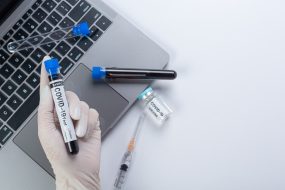
Bluebird has taken on a fresh brand identity. Following an active summer in which the company was acquired by two private equity groups, transitioned into a privately held business, and brought in new executives, the ‘bluebird’ label has officially been retired. The organization will move forward under the name Genetix Biotherapeutics, marking one of the most notable rebranding moves in the biotech sector this year.
The fresh identity nods to the company’s early days — it originally launched in 1992 as Genetix Pharmaceuticals before rebranding to bluebird bio in 2010.
Reinstating the Genetix name signals the company’s renewed emphasis on strong commercial performance and advancing transformative genetic medicines, the firm said in its latest update. The announcement underscored Genetix’s distinction as the only drugmaker to date with three FDA-cleared gene therapies: Lyfgenia, Zynteglo and Skysona.
In a statement, CEO David Meek said the rebranding goes beyond a simple name change, symbolizing fresh hope for the many people who stand to benefit from the company’s genetic treatments.
He went on to note that while the company leads the market, most patients still have not been treated. He emphasized that their therapies are designed as durable, one-time interventions capable of significantly improving symptoms. He added that the company’s mission is to partner with patients, providers, and payers to simplify and streamline access, highlighting that they have built a seasoned leadership team and a clear strategy — and expressed confidence in their ability to deliver on it.
Meek, who has previously led Ipsen, Novartis Canada and Mirati Therapeutics, officially stepped in as CEO of Genetix this June following the company’s takeover by Carlyle and SK Capital.
The buyout terms gave bluebird bio shareholders two options: a straight $5 per share payout, or $3 per share plus a contingent value right (CVR) of $6.84 per share, payable only if sales from Genetix’s three approved gene therapies exceed $600 million in any rolling 12-month period by the close of 2027. By comparison, the therapies together brought in $84 million across 2024 and nearly $40 million in Q1 2025.
With the transaction finalized, Genetix has returned to private ownership. Under its new management, Genetix has laid out four strategic priorities, with three focused squarely on improving patient access to its currently approved therapies. These include strengthening collaborations with certified treatment centers, scaling up production capacity, and advancing its overall manufacturing processes.
In addition, the company is pressing ahead with the HGB-210 phase 3 trial, which is evaluating lovo-cel (lovotibeglogene autotemcel) — already marketed as Lyfgenia — for both adult and pediatric patients with sickle cell disease.
Meanwhile, in a separate update last month, the FDA revised Skysona’s label, citing potential links between the treatment and an elevated risk of developing blood cancer.
For many industry watchers, this rebranding reflects more than a new name — it highlights a turning point in Genetix’s evolution. By restoring its original identity, the company signals a return to its roots while pursuing broader ambitions in the competitive gene therapy market. Analysts suggest the new branding can help differentiate Genetix from its past challenges, giving it a stronger foundation for growth.
The biotech industry often uses rebranding not only to refresh image but also to rebuild investor confidence and emphasize future potential. In Genetix’s case, the strategy seems to be aligned with concrete priorities: advancing commercialization, enhancing manufacturing, and ensuring access to transformative therapies.
If Genetix can capitalize on its pipeline progress and patient-focused strategy, the rebranding could stand as a pivotal move that reshapes its market position for years to come.
Genetix’s decision to undergo rebranding is also being viewed as a signal of long-term confidence in the gene therapy space. With three FDA-approved products already on the market, the company has established a unique credibility that few competitors can match. Still, success in this area depends heavily on affordability and patient access, which remain significant hurdles for the broader field of advanced therapies.







